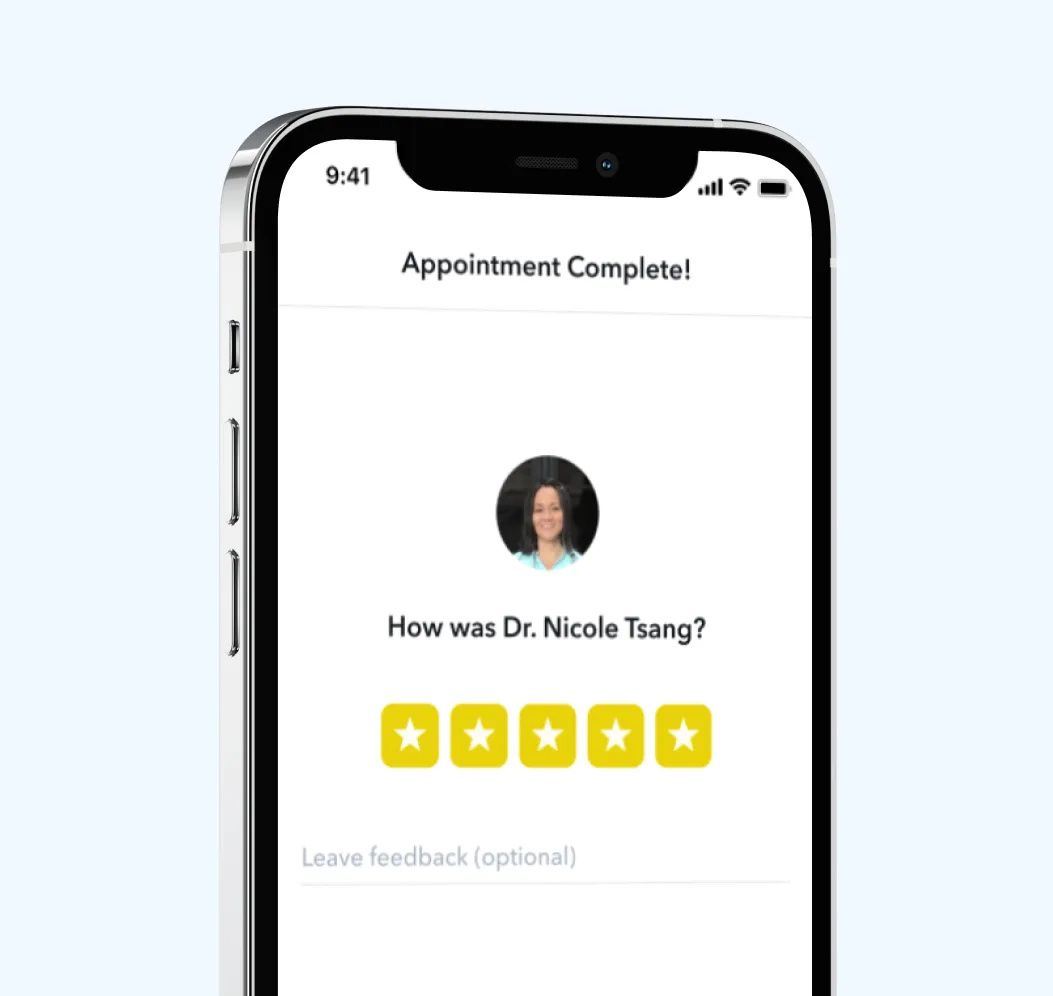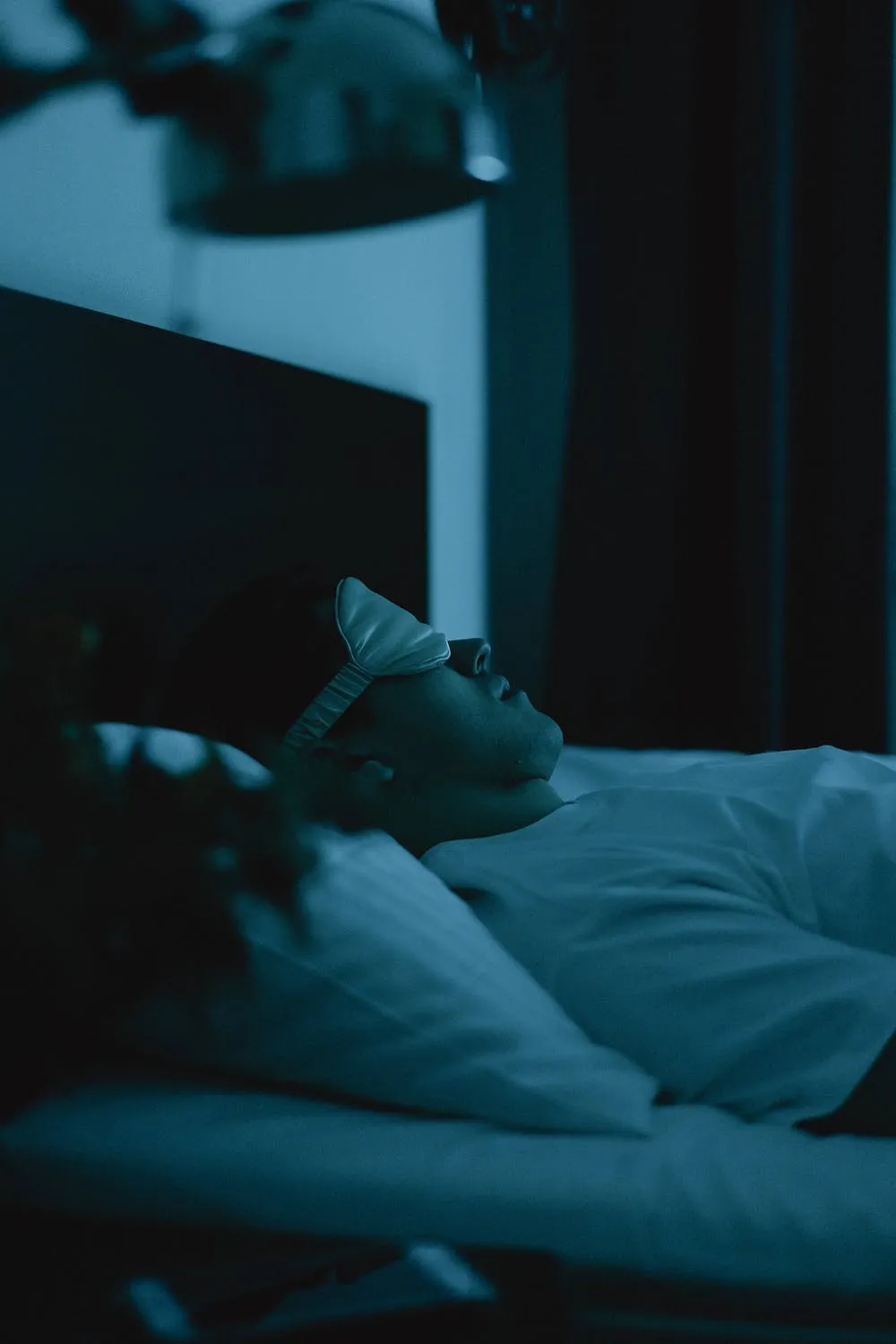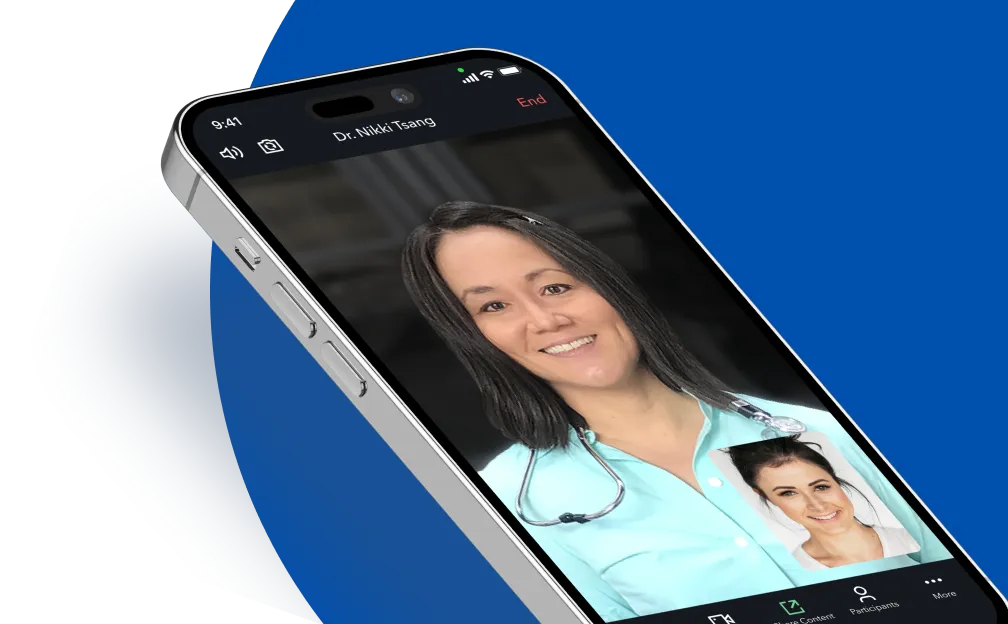Meet with an online doctor over video for anxiety diagnosis and treatment today
Circle Medical's team of board-certified and empathetic providers are standing by to help you. Attend a same-day appointment from the comfort and privacy of your own home.
Same-day appointments available


Let's get you the help you need.
Dr. Amanda Lerner
What to expect.
During your initial visit with a provider of your choice, you will discuss
your medical history and the experiences that led you to seek treatment for
anxiety. This evaluation may explore various types of anxiety disorders. Your
provider may also request previous medical records or recommend blood work to
rule out any physical conditions contributing to your symptoms.
In a follow-up appointment, your provider will collaborate with you to develop
a tailored treatment plan. This may include options such as cognitive behavioral
therapy (CBT) or appropriate anxiety medications, depending on your symptoms and
personal needs.
If your provider determines that your condition would be better managed by a psychiatrist,
they will connect you with psychiatry resources. Additionally, Circle Medical offers
therapy referrals in all locations where we provide care.
For more information on who is a good fit for anxiety diagnosis and treatment through
our practice, please review our comprehensive FAQ.
-
Comprehensive Anxiety or Depression assessment over video
-
Same-day or next-day appointment availability
-
If appropriate, we offer evidence-based treatment options for anxiety
-
Board-certified providers who provide anxiety and depression care
-
Therapy referrals available everywhere we offer care
-
As a primary care practice, we can treat you for many other conditions as well, streamlining your medical experience.
Frequently Asked Questions
Anxiety / Depression Treatment
Providers
Insurance & Billing
Other
Clinically appropriate treatment, tailored on a case-by-case basis.
We put patients first in every decision we make, and follow clinical guidelines based on evidence-based medicine to ensure patients get the most effective care possible.
Don't take our word for it.
We are trusted by over 55,000 patients every month. Here's what they have to say.
Circle Medical Providers must meet all of the following standards:
-
Exceptionally qualified in their field
-
Board-certified
-
Deeply empathetic for patients
-
Follows evidence-based care guidelines
-
Embracing of diverse patient backgrounds
-
Impeccable record of previous care
400+ Primary Care Providers.
100% Confidence.
No matter which Provider you choose, you will be seen by a clinician who cares deeply about your health and wants to help you live your happiest, healthiest life.
Circle Medical Providers are held to an exceptionally high standard of compassionate, evidence-based care.
Book Appointment

